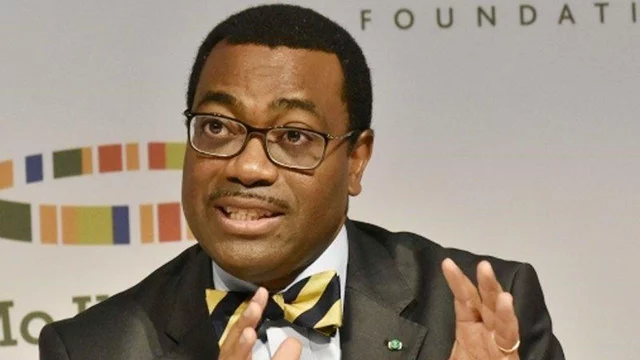AfDB President Dr. Akinwumi Adesina has warned that Nigeria is economically worse off today, under President Bola Tinubu, than it was in 1960.
In a statement issued following his keynote address at the 20th anniversary dinner of investment firm Chapel Hill Denham in Lagos, Adesina highlighted that Nigeria’s current GDP per capita stands at just $824. This is a sharp decline from the $1,847 recorded at the time of independence in 1960.
“Our GDP per capita in 1960 was $1,847. Today, it stands at $824. Nigerians are worse off than 64 years ago,” Adesina declared.
He stressed that despite being Africa’s largest economy by total GDP, Nigeria’s economic foundation is structurally unsound and unsustainable. The root causes, he noted, include decades of policy missteps, institutional fragility, excessive reliance on crude oil exports, and chronic underinvestment in vital sectors.
“Nigeria belongs in the league of developed nations. To get there, we must shift our mindset and pursue rapid economic growth,” he stated.
To emphasize his point, Adesina contrasted Nigeria’s stalled development with the meteoric rise of South Korea. In 1960, South Korea had a lower GDP per capita than Nigeria, but has since transformed into a global industrial powerhouse, with per capita income now exceeding $36,000.
“This is not a story of lack of potential; it is a story of potential that has not been harnessed. Underdevelopment should not be accepted as our destiny. We must break free from this pattern,” Adesina insisted.
He laid out five urgent priorities to reposition the Nigerian economy for sustainable growth:
Universal access to Electricity
Development of world-class infrastructure
Rapid industrialisation
Innovation-driven growth
Competitive, modernised agriculture
Adesina stressed that Nigeria’s future economic success hinges on enacting bold structural reforms—going beyond cosmetic or temporary policy changes. He called for significant investment in technology, innovation, and industrial capacity.
“We need to invest in technology, infrastructure, and innovation. We must become Africa’s industrial powerhouse,” he said.
He singled out the Dangote Refinery
as a prime example of the type of large-scale, private-sector-led industrial projects that can signal a new era of economic direction for Nigeria. According to Adesina, the country should also tap into alternative funding sources, including:
However, he cautioned that infrastructure and capital alone are not enough. For reforms to succeed, Nigeria must also strengthen its institutions, ensure policy consistency, and maintain strong governance.
Without a credible and committed reform agenda, Adesina warned, Nigeria will continue to fall behind and fail to meet the aspirations of its growing population.
“The Nigeria of 2050 must be deliberately shaped, developed, corruption-free, and lead the rest of Africa,” he concluded.

